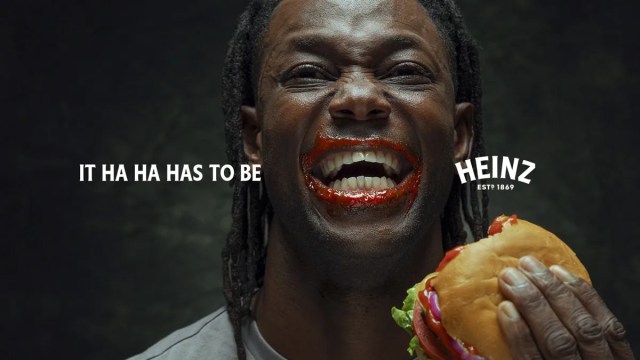The minority population (better described as the “emerging majority“) currently makes up 42% of the U.S. population and is expected to exceed 50% by mid-century. This group—including Hispanic, Black, and other non-white people—already represents the majority in several states like California and Texas. Buying power is following suit.
Despite these extraordinary changes in the market, many marketing practices remain hegemonized, translating general market plans (predominantly targeting white populations) to minority audiences without nuanced insight into cultural differences. While some organizations are further along in their multicultural thinking, all marketers must work to identify, understand, and reach diverse markets if they wish to remain competitive in this quickly evolving landscape.
Grouping individuals of varying backgrounds and identifying their commonalities has always been an inherent part of marketing. We call it “consumer segmentation.” Yet we know remarkably little about how various cultures shape consumer decisions. We are familiar with consumer insight, but do we fully understand multicultural insight? As RFPs increasingly request “multicultural capabilities,” do we even have a common understanding of what that means? The research is relatively sparse; the marketing fundamentals are outdated.
To fill this void in academic research and practical training, the University of Louisville College of Business and Doe-Anderson, the nation’s oldest independent advertising agency, crystallized a long-standing partnership and turned a critical eye toward standard marketing practices. The goal was as simple as it was significant: prepare marketers of all backgrounds to excel in a more diverse workplace and marketplace.
A twist on town and gown
The Multicultural Marketing (MCM) program launched at the University of Louisville College of Business in spring 2024. It includes an undergraduate major specialization, a minor, and an endowed assistant professorship with support for academic research and community outreach. Doe-Anderson and UofL conducted interviews with a range of stakeholders to shape the early vision, carefully selected to represent a wide range of industry sectors and cultural backgrounds. This included a diverse array of students, research faculty, and administrative leadership from multiple universities as well as marketers from local, regional, and global businesses.
We distilled the latest thinking from all those conversations into four tenets that informed program development and should be core to any multicultural marketing practice, whether in higher education or business.
Human-centered design
Great marketing puts real people at the center, keeping their pain points and preferences front of mind so outcomes are tailored to their unique needs. We must learn to listen for unique lived experiences that may be different from our own.
For students, our curriculum includes existing cultural competency courses from across the university, existing courses on marketing skills within the College of Business, and new fusion courses at the intersection of the two.
Cultural identities
To produce truly tailored outcomes, marketers must develop competencies in appreciating and responding to people’s cultural identities, which form from a sense of belonging and are increasingly complex in today’s world. Circumstances of peoples’ lived experiences may encourage or require multiple cultural identities, especially given factors like globalization, modernization, migration, and interethnic/interfaith marriages.
In one of our newly designed fusion courses titled Multiculturalism in the Marketplace, students learn the history of marketing to diverse cultural groups in the United States (e.g., Hispanic/Latino and African American) to understand how to execute effective marketing efforts to not just those groups but any group.
Diversity
As marketers pursue increasingly diverse markets, marketing teams should reflect the diversity of the consumers and communities they serve. Homogenous perspectives cannot empathize with a heterogeneous market. Every marketer, no matter their background or identity, must be able to appreciate, understand, and integrate diversity in developing marketing plans and leading marketing teams.
Students in the program can develop the multicultural competence needed to tap into the power of diversity and inclusion in teams, organizations, markets, and societies through electives such as Managing a Diverse Workplace.
Marketing constraints
Neither marketing budgets nor marketing tools allow for true one-to-one communication at scale. Therefore, marketers must segment and prioritize consumers to maximize brand investments.
These decisions are critical for maximizing marketing effectiveness and ROI and require some level of generalization. In another fusion course, students learn how to design fiscally and socially responsible marketing plans in the Multicultural Marketing Strategy capstone class.
Early success
In its first year, the program is meeting its goal. We are preparing students to make a positive difference in an increasingly diverse world and developing a deeper pipeline of diverse marketing talent. The program is even attracting students who wouldn’t otherwise have pursued a career in marketing.
For instance, Sheridan Darnell taught at an elementary school and didn’t have a marketing background before enrolling in the University of Louisville College of Business. Still undecided on a major, she took the program’s introductory course in January this year. Before the semester ended, Darnell declared a major in Marketing.
To date, enrollment for the upcoming sections of Multiculturalism in the Marketplace has grown by 60% to full capacity with a waitlist.
The program is quickly becoming a thought leadership hub for the business community. Our engaged board of advisors and community partners are committed to providing hands-on class projects, internships, mentorship, and job opportunities while fostering a professional community for those committed to diversity in marketing. Our CLIK Consumer Behavior Research Conference disseminates new, applicable research while helping attract new faculty interested in studying and teaching multicultural marketing. In return, businesses are gaining early access to diverse talent and cutting-edge research.
Thoughtfully planned and integrated multicultural marketing programs are a promising response to the resounding chorus calling to increase the focus on culture in marketing. By highlighting the importance of multicultural marketing at the undergraduate level, programs like this validate the next generation’s experiences with multiculturalism by preparing a diverse workforce for a diverse marketplace. Linking business and academic communities in this pursuit ensures research agendas align with business needs and future marketing leaders are well positioned to make a lasting impact.

![Paul Caiozzo, who co-founded AI-driven agency Supernatural, is moving to Tombras as chief creative officer at the agency’s Knoxville, Tennessee headquarters. With Caiozzo coming on board, Jeff Benjamin will be […]](https://rassegna.lbit-solution.it/wp-content/uploads/2024/11/answerlab-taps-former-huge-global-president-as-ceo.png)

![McCann Worldgroup has hired creative leader Jordan Doucette as chief creative officer, McCann Worldgroup, Canada, where she will oversee all creative operations across Canadian offices, including McCann, MRM and Craft, […]](https://rassegna.lbit-solution.it/wp-content/uploads/2024/11/britt-nolan-departs-leo-burnett-for-mccann-worldgroup.png)






